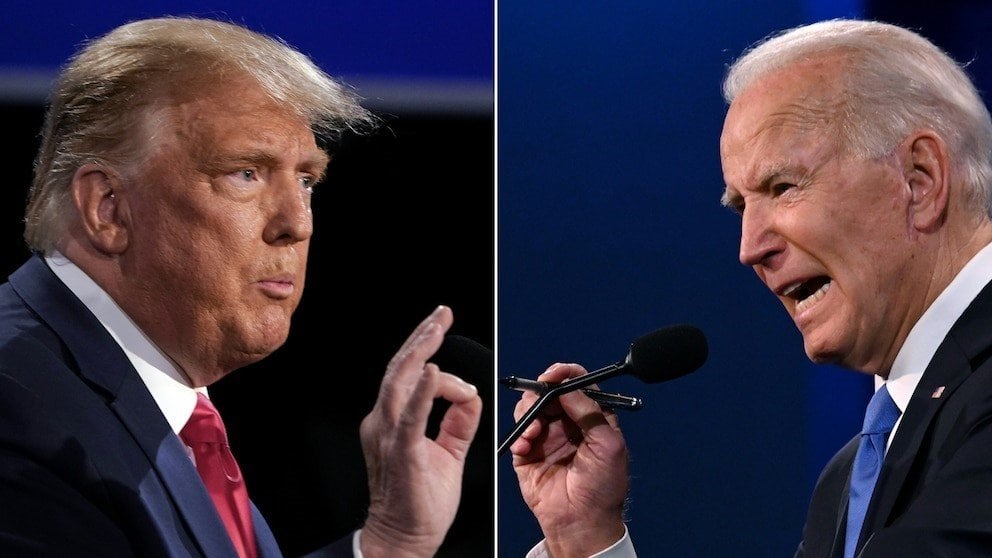 |
| US Election 2024: Economic policy rematch, will President Biden's contrasting colors win over Trump? (Source: Getty Images) |
An ABC News/Ipsos poll shows that the economy is the top concern of American voters ahead of the vote to choose the next White House chief. So how do their plans for the future of the US economy differ?
What will be the deciding factor?
Former President Donald Trump has defeated his Republican rivals in the race for the first Republican nomination in 2024, setting the stage for a potential rematch with incumbent President Joe Biden — the likely Democratic nominee.
The deciding issue in the race between Mr. Trump and President Biden, according to recent polls, may simply be the “health” of the U.S. economy. An ABC News/Ipsos poll in November found that 74% of Americans said the economy was very important to them, making it the top concern for voters.
Neither candidate’s campaign responded to requests for comment. But President Biden and former President Trump are at odds on issues that have a direct impact on Americans’ finances, including taxes, jobs and trade.
While President Biden has sought to raise taxes on the wealthy and some large corporations during his term, he sees this as an effort to bring fairness to the tax code. Former President Trump has a different view, seemingly willing to maintain or even reverse this policy by cutting taxes, which he sees as a catalyst for economic growth.
Donald Trump has pledged to extend the tax cuts signed into law during his first term, when they begin to phase out in 2025. Stephen Moore, who served as an economic adviser to the former president, told ABC News that he helped shape Trump's agenda for his second term.
A future administration could seek further tax cuts, but the details of such a proposal remain uncertain, Moore said. “It’s all in the discussion, nothing has been decided yet.”
In contrast, the current Biden administration has proposed raising taxes on the wealthy and has prioritized expiring some of the tax cuts of his predecessor Donald Trump.
For example, a Biden administration could closely monitor the expiration of the 20% tax deduction for certain income generated at pass-through businesses through individual owners, a move that would effectively raise taxes on the owners of those businesses.
Meanwhile, targeting high-net-worth individuals, President Biden could impose the first of its kind wealth tax. Last year, the current US administration proposed a 2024 tax plan that includes a 25% tax on the wealth of individuals with a net worth exceeding $100 million. Mr. Biden said the plan would only apply to 0.01% of Americans.
“I am a capitalist, but pay your fair share,” President Biden said in his State of the Union address last year.
The US Congress , currently divided on the issue, is unlikely to pass such a tax increase, but President Biden could pursue it if re-elected to a second term.
Who is better?
On foreign economic issues, although Mr. Biden's campaign has not yet outlined a trade policy agenda for his second term, his administration has so far maintained a tough stance toward some countries considered confrontational, such as China, while promoting trade agreements with other economies.
Specifically, President Biden has kept in place the tariffs imposed by his predecessor Trump on Chinese imports, escalating the confrontation with the world's No. 2 economy through additional "tightening" measures, such as a ban on the export of advanced chips to the country.
On the other hand, the US has in recent years reached trade agreements on a number of goods with economies such as Taiwan (China), or its ally Japan.
In December, the Biden administration also extended a suspension of Trump-era tariffs on steel and aluminum from Europe, but the White House has yet to establish a permanent deal to remove the tariffs.
As for former President Trump, he is expected to intensify the confrontational trade policy established during his first term, promising to impose tariffs on most imported goods.
Speaking to Fox Business in August 2023, Mr. Trump said that the tariffs on imported goods could eventually be as high as 10%.
Mr Trump also plans to tighten restrictions on Chinese-made products, including a “four-year plan to phase out all essential imports from China”, according to a series of proposals released last February.
On jobs and manufacturing, both potential US presidential candidates boast that they are job creators and fosterers of American manufacturing. But they have taken very different approaches to doing so.
Former President Trump's campaign presented his tariff policy as a means to protect American businesses, thereby ensuring a strong job market and, in turn, strengthening domestic supply chains.
“Mr. Trump wants more jobs created in America. He also wants more products made in America,” said economic adviser Stephen Moore.
In contrast, the Biden administration has used policy tools, enacting federal laws to bring large investment sources to American companies and thereby boost demand for labor and jobs.
Speaking at the Economic Club of Chicago last week, Treasury Secretary Janet Yellen pointed to several measures signed into law by President Biden that have brought investment to projects focused on infrastructure, computer chips and clean energy.
“These investments will boost our economic growth and strengthen our economic security,” Ms. Yellen expressed confidence.
For many investors on Wall Street and American voters, the possibility of Mr. Trump being re-elected is high because they believe that this billionaire businessman is capable of managing the economy better than the current President Biden. However, there have also been many controversies about Mr. Trump's proposed economic policies.
No one can predict what the US economy will do during any president’s term. There were predictions that if Trump were elected in 2016, the US would face economic disaster, but that prediction proved to be completely wrong. On election night that year, US stock market futures fell sharply, but the market quickly reversed and ended in bright green the next day.
Source



![[Photo] Readers line up to visit the photo exhibition and receive a special publication commemorating the 135th birthday of President Ho Chi Minh at Nhan Dan Newspaper](https://vphoto.vietnam.vn/thumb/1200x675/vietnam/resource/IMAGE/2025/5/17/85b3197fc6bd43e6a9ee4db15101005b)
![[Photo] Nearly 3,000 students moved by stories about soldiers](https://vphoto.vietnam.vn/thumb/1200x675/vietnam/resource/IMAGE/2025/5/17/21da57c8241e42438b423eaa37215e0e)



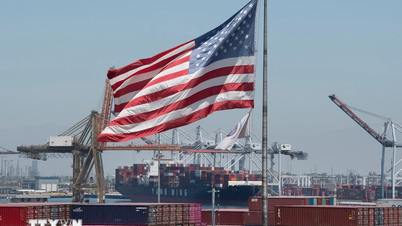





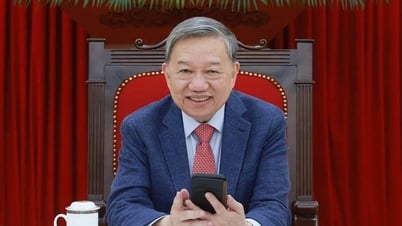

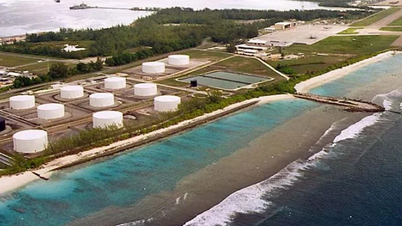


















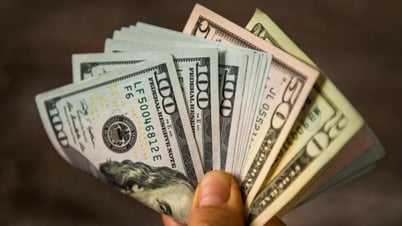


































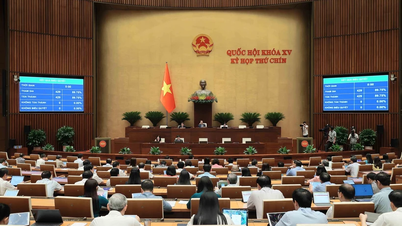
































Comment (0)